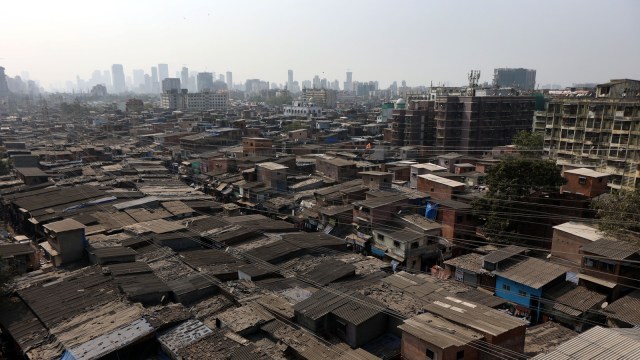Maharashtra govt’s ‘strange’ slum policy encourages encroachments on private and public lands: Bombay HC
The Bombay High Court said 'a thorough introspection on such government policies' is needed considering 'plight the future generation would suffer'.
 The bench observed that the present method of acquisition under the Slum Act is 'quite draconian' with minimal say to the landowners while it gives 'enormous discretion' to the CEO of the SRA. (Express photo/File)
The bench observed that the present method of acquisition under the Slum Act is 'quite draconian' with minimal say to the landowners while it gives 'enormous discretion' to the CEO of the SRA. (Express photo/File)The Bombay High Court on Tuesday observed that the Maharashtra government’s slum policy, through which private and public lands get converted into free tenement for encroachers once it is recognised as slum rehabilitation area, is “strange”.
The court remarked that if the Slum Rehabilitation Authority (SRA) and the “official machinery was to act as per law, today we would not have been confronted with the situation of an international city like Mumbai being also known for its slums on private and public land”.
The court said that such a state policy “encouraged encroachments” and it requires “a thorough introspection on such government policies” considering “plight the future generation would suffer.”
In observing so, the court granted relief to the Trust managing Mount Mary’s Church in Bandra (West) and set aside action initiated by the Slum Rehabilitation Authority (SRA) to acquire 1,596.40 square metre of land of the Trust for the redevelopment of 35 slums tenements situated on it.
The court set aside notice issued to the Trust by the SRA CEO for acquisition of the Trust land and observed the said notice to be “patently illegal”.
The court said it was a “classic case”, where a private developer tried to “usurp the land under the garb of slum-redevelopment” and the SRA had proposed to pay “paltry” sum of Rs 17 lakh as compensation to the owner of such a prime land situated in Bandra.
It added, “The slum dwellers merely by forming a society cannot assert that their rights are higher than the rights of the owners of the land.”
The bench observed that the present method of acquisition under the Slum Act is “quite draconian” with minimal say to the landowners while it gives “enormous discretion” to the CEO of the SRA, leaving scope for “large scale arbitrariness and illegality”.
It said it was “astonishing” as to why the SRA would not grant opportunity to the petitioner to undertake development on its own and rehabilitate the slum dwellers, instead of resorting to compulsory acquisition.
“In our opinion, it is as good as a premium on the illegality of the encroacher in encroaching on either private or public land. Unfortunately, it is the State policy which in fact has encouraged encroachments on all categories of lands and in fact has resulted in large Government lands being siphoned out from the ‘State pool’ and equally private lands being completely lost to its owners,” a division bench of Justices Girish S Kulkarni and Jitendra S Jain observed in its judgment passed on Tuesday.
It added that such a position was “wholly unacceptable” as the landowner is subjected to compulsory acquisition of the land through “draconian action” which is not contemplated in the statutory scheme.
The bench said the SRA and other authorities “need to be conscious of the ground realities that it is an herculean task in a city like Mumbai to remove any encroachment on private and public land.”
Terming it a “sad story”, it said the “encroachments are invariably backed by slumlords, criminals, social workers, politicians (as the squatters would be vote banks)”. Therefore, it becomes “impossible for bonafide land owners to fight with such forces” to prevent the land from encroachment.
Justice Kulkarni for the bench said it reminded it of “woeful realities”, as “major public lands in Mumbai have vanished as a public pool and are subject to private development under the garb of slum redevelopment”.
The Bombay High Court said it was conscious of the needs of larger cities which require a large amount of migrant work force and their residential needs.
However, it said, “This could not mean that valuable public or private lands can be taken away merely because such lands for a long period are permitted to be encroached, throwing to the winds, the elementary adherence of principles of law on the right to property.”
The court directed the SRA to recognise the petitioner’s rights to undertake redevelopment and asked the petitioner’s architect to submit a proposal for the same within eight weeks. The SRA is also asked to consider the proposal within six weeks after its submission as per law to expeditiously carry out the development.







